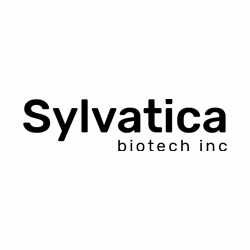To survive the winter, the arctic wood frog Rana sylvatica performs a pretty amazing trick: its heart stops beating as it partially freezes. In the spring the frog thaws out healthy and spry.
The capabilities of the wood frog inspired the founding of Sylvatica Biotech, a North Charleston-based company trying to extend the shelf-life of organs for transplantation by freezing them—something that currently damages organs beyond use due to ice crystal formation.
“One of the new avenues that Sylvatica is exploring is to see whether we can actually store and bank organs at high subzero temperatures the way the wood frog survives,” says Michael Taylor, co-founder and chief scientific advisor of Sylvatica, and an expert in the field of cryomedicine.
A human liver is only viable outside the body for 12 hours. A heart is only good for six. And an organ that passes its prime can’t save a life.
Because doctors can’t freeze organs, they must work fast to assign them for transplants. A human liver is only viable outside the body for 12 hours. A heart is only good for six. And an organ that passes its prime can’t save a life.
Sylvatica is working on ways to protect organ cells and tissues from ice crystal damage. The company recently cryopreserved a section of liver for five days, extending its shelf life ten times. These shelf life extensions will not only save more lives, they could help doctors ensure an organ is healthy, so it won’t be rejected.
Taylor credits funding from the NIH Small Business Innovative Research program for this and other advancements made by the company. “[The SBIRs] have allowed us to pursue new ideas and approaches to solving this long-standing problem of organ shortage.” The grants have also allowed Sylvatica to collaborate with key academic partners like Harvard University and Johns Hopkins University.
In just four short years, the company has been awarded SBIR grants to address organ transplant needs related to seven NIH Institutes. Taylor thinks their diversity of funders is a testament to the vast number of potential applications of their cryopreservation work.
 Sylvatica also received entrepreneurial training from the I-Corps@NIH program. “It provided very strong mentoring and guidance on how to identify [our] customer base,” says Taylor. The program also helped them write their commercialization plans and refine their successful Phase II and Phase IIB proposals.
Sylvatica also received entrepreneurial training from the I-Corps@NIH program. “It provided very strong mentoring and guidance on how to identify [our] customer base,” says Taylor. The program also helped them write their commercialization plans and refine their successful Phase II and Phase IIB proposals.
The company plans to seek venture capital funding later this year and Taylor thinks the odds look promising. “There are some big investment groups who recognize that if we achieve what we set out to achieve—and we're pretty confident we will—that will be a game changer for transplantation medicine.”







